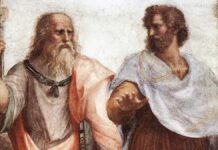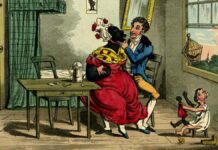Classical criticism refers to the literary theories and principles established by ancient Greek and Roman scholars that have profoundly influenced Western literary thought. It was a period of profound intellectual inquiry, where philosophers and critics sought to understand the nature and purpose of art. Central figures in classical criticism include Aristotle, Plato, Horace, and Longinus.
Western Tradition
Western Tradition in classical criticism is rooted in the philosophical and literary ideas developed in ancient Greece and Rome. This tradition has shaped literary analysis for over two millennia, influencing how we understand and evaluate literature. It emphasises rationality, structure, and the relationship between art and reality. The primary texts that form the backbone of this tradition are Aristotle’s Poetics, Plato’s Republic, and Horace’s Ars Poetica. These texts provide foundational insights into the nature and purpose of literature and art.
Plato viewed poetry and art with suspicion, considering them mere imitations of reality and potentially misleading. He proposed that poetry should serve moral and philosophical purposes.
On the other hand, Aristotle offered a more systematic approach to literary criticism. His Poetics is the earliest surviving work of dramatic theory and includes a detailed analysis of the elements and structure of tragedy.
Horace emphasised the importance of poetic craftsmanship and the need for poetry to delight and instruct, a principle famously encapsulated in his dictum, “utile dulci” (the useful with the sweet).
Mimesis
A central concept in classical criticism is mimesis, which translates to “imitation”. In his Poetics, Aristotle argued that all art is essentially an imitation of life and that humans have a natural propensity for imitation, which is a fundamental way of learning. However, this is not a mere replication but a selective representation that aims to reveal universal truths about human experience. Plato viewed mimesis sceptically, seeing art as an imitation of reality, which itself was an imperfect reflection of ideal forms. In literature, mimesis refers to the representation of reality in art.
Nature of Mimesis
It involves the representation of reality in a way that reflects universal truths. Unlike Plato, who saw imitation as a deceitful practice that distanced the viewer from the truth, Aristotle viewed mimesis as a means of understanding the world.
Purpose of Mimesis
It serves to present not just what is but what could be. Literature and art can explore possibilities and moral questions through mimesis, providing insight and emotional engagement.
Tragedy
Tragedy is a significant focus of classical criticism, especially in Aristotle’s Poetics. A prominent genre in classical Greek drama, it was a subject of intense scrutiny. It was seen as a form of catharsis, a purging of emotions, primarily pity and fear. Aristotle identified the tragic hero as a character of noble stature who suffers a downfall due to a tragic flaw or hamartia. Aristotle defines tragedy as the “imitation of an action that is serious, complete, and of a certain magnitude which evokes pity and fear, leading to a catharsis of these emotions”, presented in a dramatic form. He considered tragedy the highest form of poetry, capable of providing both emotional and intellectual satisfaction.
Elements of Tragedy
According to Aristotle, a tragedy must have six parts: plot, character, thought, diction, melody, and spectacle. Among these, the plot is the most important, followed by character.
Function of Tragedy
Tragedy aims to evoke pity and fear in the audience, leading to the catharsis of these emotions.
Unities
The unities of action, time, and place were critical principles in classical dramatic theory. They are a set of principles for drama derived from Aristotle’s Poetics, though later formalised by Italian critics of the 16th century. These rules dictated that a play should focus on a single, complete action, take place within a single day, and occur in a single location. While these rules have been challenged and modified over time, they were fundamental to the structure of classical drama. These unities were meant to create a coherent and focused narrative structure and were seen as essential for maintaining verisimilitude in drama.
Unity of Action
The play should have one main action that it follows, with no or few subplots.
Unity of Time
The action should take place over no more than 24 hours.
Unity of Place
The action should occur in a single physical location.
Catharsis
Catharsis is a crucial concept in Aristotle’s theory of tragedy. It refers to the emotional purging or cleansing that the audience experiences as a result of the tragic events depicted in the play. Aristotle believed that by witnessing the protagonist’s downfall, the audience can purge these emotions, achieving a sense of purification and relief.
Emotional Response
Through the evocation of pity and fear, the audience undergoes a cathartic experience, which Aristotle believed to be a form of emotional healing.
Moral and Psychological Impact
Catharsis allows the audience to confront intense emotions in a controlled environment, leading to a better understanding of human nature and moral truths.
Tragic Flaw (Hamartia)
The tragic flaw is a critical element of Aristotelian tragedy. It refers to the character defect or error in judgment that leads to the downfall of the tragic hero. Often used interchangeably with a tragic flaw, hamartia more precisely refers to the hero’s error or mistake that leads to their downfall. This flaw is usually related to hubris (excessive pride) but can take many forms. It is crucial to note that hamartia is not necessarily a moral failing but often a character’s inherent vulnerability or weakness. It’s not necessarily a character flaw but can be an error made in ignorance or due to unavoidable circumstances.
Nature of Hamartia
It is often misunderstood as a character flaw or moral failing. However, Aristotle’s hamartia is more accurately an error in judgment or a mistake that leads to the hero’s downfall.
Function in Tragedy
This flaw or mistake is integral to the plot, setting off a chain of events culminating in a tragic outcome.
Tragic Hero
The tragic hero, as conceived by Aristotle, is a character of noble stature and good intent whose downfall is brought about by a tragic flaw or hamartia. Their downfall is not due to mere chance or wickedness but rather a tragic combination of circumstances and personal error. The hero’s fate is usually greater than deserved, and their story typically evokes pity and fear in the audience.
Characteristics
Aristotle’s tragic hero is typically a noble person with virtuous qualities who is nonetheless imperfect. This combination of greatness and imperfection makes the hero relatable and elicits pity and fear.
Downfall
The tragic hero’s downfall is both inevitable and meaningful, highlighting the interplay of fate and personal responsibility.
Sublimity
Sublimity is a concept explored by Longinus in his treatise On the Sublime. It’s characterised by elevated thought, inspired passion, and noble diction that moves the audience to ecstasy. Sublimity transcends mere persuasion to achieve a kind of transcendent wonder. It has the power to evoke awe and admiration. While not exclusively a classical concept, it was significantly developed in this period and has continued influencing aesthetic theory.
Elements of Sublimity
According to Longinus, sublimity arises from the use of elevated language, powerful emotions, grand themes, and the ability to elevate the audience’s mind.
Impact
Sublimity transcends the ordinary, leaving a lasting impression and providing a profound aesthetic experience.
Decorum
Decorum refers to the principle of appropriateness in classical criticism, ensuring that a work’s style, tone, and subject matter are suitable for its intended audience and purpose. Decorum also ensures that actions and motivations are consistent with a character’s nature and social status.
Literary Decorum
Involves the proper matching of subject matter with the correct form and style. For instance, lofty subjects require an elevated style, while everyday topics might be best suited to a more straightforward approach.
Character Decorum
Characters should act and speak in ways consistent with their social status, age, gender, and personality, contributing to the work’s overall harmony and believability.
Poetic Justice
The idea that virtue should be rewarded and vice punished within the context of a literary work became particularly important in later interpretations of classical ideas.
Verisimilitude
The appearance of being true or accurate. Classical critics emphasised the importance of making fictional events seem plausible and consistent with reality.
Aristotle’s Six Elements of Tragedy
- Plot (mythos)
- Character (ethos)
- Thought (dianoia)
- Diction (lexis)
- Song (melos)
- Spectacle (opsis)
Rhetoric
The art of persuasive speaking or writing. Classical critics, particularly Roman ones like Cicero and Quintilian, emphasised the importance of rhetorical skills in literature.
Genre Theory
Classical criticism established the foundations of genre theory, categorising literature into forms like epic, lyric, and dramatic poetry, each with its own rules and conventions.
Classical criticism, with its emphasis on form, structure, and the emotional impact of drama, has had a profound and enduring influence on Western literary and dramatic theory. Its core concepts —mimesis, tragedy, the unities, catharsis, hamartia, tragic hero, sublimity, and decorum —provide a framework for analysing and appreciating literary works’ artistic and emotional depth. Classical criticism continues to offer valuable insights into the enduring power of art and storytelling by emphasising the balance between form and content and the moral and psychological impact of literature. While contemporary criticism has expanded and diversified, the core concepts developed by the ancient Greeks continue to be relevant and debated. The emphasis on structure, character, and the emotional and intellectual impact of literature remains central to many approaches to literary criticism.






























